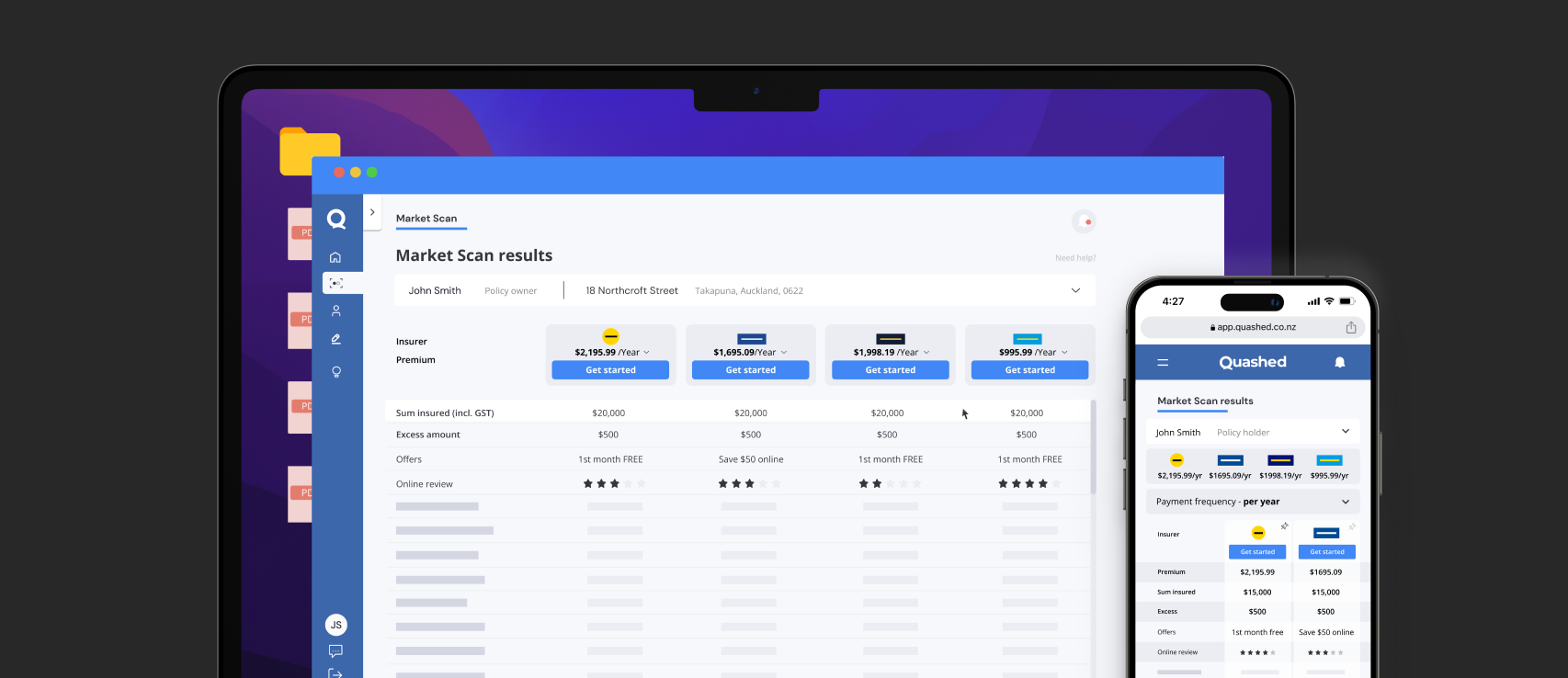
When your life changes, your car insurance needs may change too. Failing to notify your insurer of changes in your circumstances could result in higher premiums, reduced coverage, or even policy cancellation – leaving you financially vulnerable in the event of an accident or loss.
In this article, we collaborate with Assurant (formerly Protecta Insurance), one of New Zealand’s leading specialist in car and motorbike insurance, to explore common changes and often overlooked updates, that New Zealand drivers should communicate to their insurers. We explain why these updates matters and share practical tips to help you maintain valid, and cost-effective car insurance coverage. Most of it comes down to good old-fashioned common sense.
Why keeping your insurer updated matters

Insurers assess risk and set policy prices based on the details you provide. Any changes to your circumstances can shift the level of risk they’re taking - whether that risk increases or decreases.
For example, relocating to a city or suburb with higher vehicle theft rates might increase your risk leading to a higher premium. On the other hand while installing an approved alarm system or parking your vehicle in a garage instead of on the street could lower your risk and, in turn, your premium. Keeping your insurer updated with accurate, up-to-date information ensures your policy accurately reflects your current situation. It also helps your insurer assess the true level of risk and price your policy fairly and appropriately.
What happens if you don’t keep your insurer informed about your situation
Failing to provide your insurer with a complete and accurate picture of your circumstances could have serious consequences. On one hand, it might mean you’re paying more than necessary for your policy. On the other hand, it could lead to reduced payouts or in the worst-case scenario, a full claim denial when you need it most.
Common oversights include failing to disclose additional drivers, vehicle modifications, or changes to your address. In one Auckland case, a policyholder faced an $18,000 claim denial after neglecting to inform their insurer about their flatmate’s regular use of car. A costly reminder of the importance of full disclosure.
Assurant, a motor vehicle insurance specialist in NZ, shares “It's best to check with your insurer if you are unsure if any changes in your circumstances would alter your insurance cover. Often it will just be a change in your premium amount, if there is any change at all. Rather than the insurer not being able to insure you any longer”.

Here are some common changes that you should share with your car insurer
1. Vehicle and Contact Information
Let’s start with the basics. It’s crucial to inform your insurer about any changes to your car registration, name, address or phone number. This not only ensures they can verify you as the vehicle’s rightful owner and policyholder, but also guarantees that they can contact you promptly when needed. Whether it is to resolve a claim, confirm details or notify you of urgent updates. Keeping your information current helps protect your coverage and keeps everything running smoothly in case of an emergency.
2. Residential Relocations & Parking Locations
Relocating whether within the same city or to a new region can affect your insurance premiums due to differences in local risk factors. Insurers take into account elements such as traffic density, accident statistics, theft rates, and weather related risks. Temporary moves (e.g., six-month work transfers) also require notification, as your vehicle’s storage location affects risk.
3. Vehicle Modifications
Non-factory modifications such as window tinting, alloy wheels, security or alarm systems and sports exhausts often need to be disclosed to your insurer. The specific requirements can vary between insurers, but many will ask about certain types of modifications or whether their total value exceeds a specific threshold. If you’re uncertain about whether a modification needs to be declared, it’s always better to inform your insurer. Providing full and accurate details allows them to assess how the modifications might impact theft risks or accident likelihood, ensuring your policy remains valid and your coverage adequate.
4. Commercial Use
Switching from personal use to activities like ride-sharing (e.g., Uber), food delivery, or tradesman transport typically invalidates most personal car insurance policies. If you are using your vehicle for work purposes beyond regular commuting, it is likely that you will need to transition to a commercial policy. Not making this change could leave you without proper coverage in the event of an accident or claim, so it’s essential to notify your insurer and confirm you have the right type of policy in place.
5. Adding Regular Drivers
Household members and frequent car users such as a partner using the car monthly should be listed on your policy. Insurers assess each driver’s age, licence type, and claims history to calculate risk and determine coverage.
Failing to include individuals like your 17-year-old child or your 25-year-old flatmate who occasionally borrows the car could lead to serious consequences, such as invalidated coverage in the event of an accident.
Full disclosure ensures that everyone who drives your car is covered, protecting you from potential financial and legal risk.
6. Licence Status Changes
It’s essential to notify your insurer about any demerit points, licence suspensions, convictions, or medical licence restrictions. The type of licence you and other drivers on the policy hold also plays a significant role, for instance, whether it’s a learner, restricted or overseas licence.
Failing to disclose this information could have serious consequences when it comes time to make a claim. Even if you have purchased and paid for the policy, non-disclosure might lead to a reduced payout, an unexpected increase in your excess, or in worst case scenario, the complete voiding of your policy.
7. Driving Distance
Covering more distance in the year (e.g. 25,000 kms) compared to the average driver will likely make you a higher insurance risk. Driving less (e.g. 5,000 kms) will have the opposite effect. Most insurers, but not all, will take this into account and will likely impact the cost of your policy.

Getting in touch with your insurer
Most insurers in New Zealand support various channels such as phone, email and online portals to make changes to your policy.
Assurant understands that reaching out to your insurer might not be something you look forward to, but with them, it doesn’t have to be a hassle. They have streamlined their process to make it quick, simple and stress free, ensuring you get the help you need without the headaches. If you’re an Assurant customer, you can reach out to them via email (nz.contact@assurant.com) or by phone (0800 776 832). Their friendly and local support team is readily available to help.

Take 10 (minutes) to check your policy information once a year
Life gets busy and it’s all too easy to overlook notifying your insurer about changes. However, as we have highlighted in this article, neglecting to do so could lead to higher premiums, or in the worst case, it could result in a denied insurance claim when you need it most. Why not use your policy renewal as the perfect opportunity to review your insurance. Keep an eye out for the email or letter from your insurer about your upcoming renewal. It’s not just a reminder but a chance to review any updates to you or to your premium and ensure your coverage stays accurate and cost effective. Taking a few minutes now could save you from costly surprises down the road.
Changes to look out for in your car insurance policy schedule:
Contact information e.g. owner, email, mobile number
Vehicle information e.g. licence plate
Location information e.g. street parking
Usage information e.g. distance driven
Driver information e.g. age, licence type
Claim history e.g. recent claims and if there was an excess paid
While you’re at it, reviewing the Market Value or Sum Insured amount of your car could potentially save you money. If it’s been a while since you last updated this your car may have depreciated overtime. Adjusting your sum insured amount to reflect it’s current value could lower your premiums while still providing adequate coverage to replace your car in the event of a total loss.
Taking a few moments to check could mean a better deal and more accurate coverage – worth the effort for peace of mind.
If you use Quashed.co.nz to track all your policies in one place, you’ll also get a reminder from us to check and shop your policy close to your renewal date.

Shopping around for your insurance policy
The cost of your insurance is influenced by a variety of factors, like those we’ve discussed above. As these factors evolve over time, it’s a good idea to explore whether other insurance options might better suit your needs.
Policy premiums and coverage benefits can differ significantly between insurers. So, taking the time to compare options can help you secure the best deal. By reviewing your options and shopping around you can keep your insurance both affordable and tailored to your requirements – ensuring you’re not just saving money but also getting the benefits that matter most to you.
Comparing insurance used to be difficult, but it’s quick and easy with Quashed.co.nz. Enter your information once and get multiple quotes across a number of insurers in a couple of minutes.
Ready to compare insurance, experience Quashed for yourself today
Take the guesswork out of comparing insurance with Quashed. It’s fast, free, and designed for Kiwi consumers who want insurance options—without the hassle.
Compare now and discover insurance that works for you.
Further reading
Here are some great reads we've selected for you:
How to Save Money on Insurance: Clever ways to cut your insurance costs
Insurance Mistakes to Avoid: Costly blunders that could drain your wallet with insurance
Comparing Insurance Costs for Cars: Insurance cost differences across the most popular vehicles in NZ
Compare House Insurance Quotes: Smart ways to evaluate house insurance cover
Key considerations with Contents Insurance: Snagging affordable cover without cutting corners
Average Insurance Costs in NZ: A deep dive into what Kiwis really pay for car, house and contents insurance
Home Insurance Guide: A must-read for protecting your biggest asset
Complete Contents Insurance Guide: Everything to know about contents insurance —minus the jargon
Frequently Asked Questions - Updating Car Insurance
Why is it important to keep my insurer updated about changes in my circumstances?
Keeping your insurer informed ensures your policy accurately reflects your current situation, allowing them to assess risk properly and price your policy fairly.
What kind of changes should I notify my insurer about?
You should inform your insurer about changes such as moving to a new location, installing security systems, or changing where you park your vehicle.
How can changes in my circumstances affect my car insurance?
Changes can either increase or decrease your risk level, potentially leading to higher or lower premiums. For example, moving to an area with higher theft rates might increase your premium, while installing an approved alarm system could lower it.
What are the consequences of not informing my insurer about changes?
Failing to provide accurate information could result in higher premiums, reduced coverage, or even policy cancellation, leaving you financially vulnerable in case of an accident or loss.
Can keeping my insurer updated help me save money?
Yes, informing your insurer about changes like improved security measures or your teenage driver no longer driving your car could potentially lower your premium.
Who should I contact to update my car insurance information?
You should contact your insurance provider directly.

